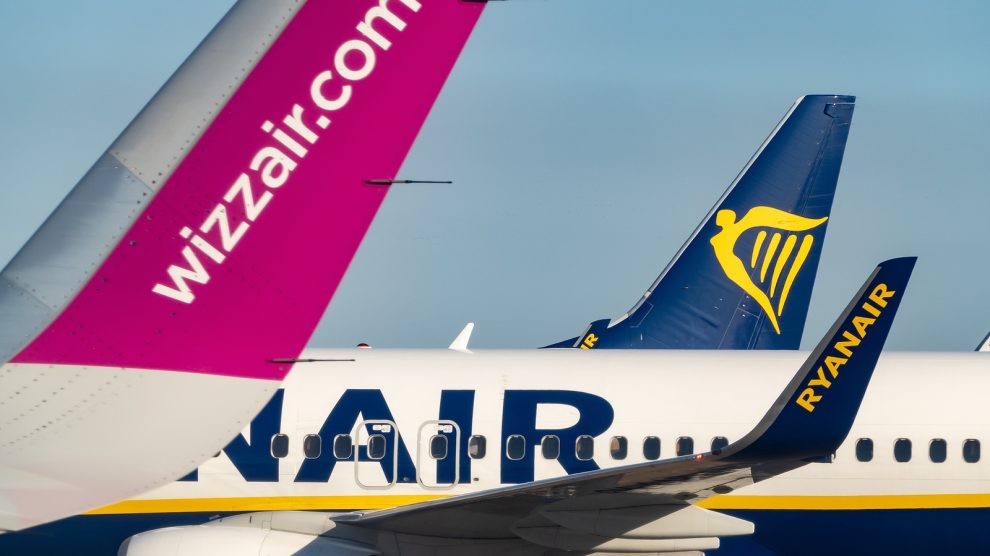A long standing wrong is righted as the EU agrees to allow Kosovo’s citizens visa-free access to the bloc.
Finally. On April 18, the European Parliament voted to remove visa requirements for citizens of Kosovo wishing to travel to the European Union.
When the EU’s electronic European Travel Information and Authorisation System (ETIAS) comes into operation, expected sometime between November 2023 and January 2024, Kosovans will be able to visit family and holiday in the bloc for 90 days out of any 180-day period without a visa.
Kosovo was the only remaining country in the Western Balkans whose citizens still required visas to enter the Schengen Area.
- The EU brokered a deal with Serbia and Kosovo. What’s next?
- Is new agreement a turning point for Serbia and Kosovo?
- The EU is flexing its muscles in Ukraine and the South Caucasus. It was about time
Between 2018 and 2021, 268,846 Kosovans applied for visas—the average cost of which is 165 euros—to EU countries but only 20,040 were granted.
The European Commission confirmed Kosovo met the requirements to secure visa-free travel to the EU in 2018, but the European Council had blocked the approval process over the concerns of some member states.
Five EU countries—Spain, Greece, Cyprus, Slovakia, and Romania—do not recognise Kosovo. France and the Netherlands expressed concerns about migration.
“Visa liberalisation is now a reality,” Kosovo’s government said in a statement, while Kosovar President Vjosa Osmani called the decision, “a victory for the people of Kosovo, for democracy and for European unity.”
Kosovo formally applied to join the EU in December 2022. The European Commission recognises it as a potential candidate for accession, but it has not yet been granted candidate status.
In March, Kosovo, along with Albania, North Macedonia, and Montenegro, launched the Western Balkans QUAD-100% Alignment with EU Common Foreign Security Policy (CFSP) platform to bring its foreign policy into full alignment with that of the EU.
Links to normalisation with Serbia
Kosovo’s EU prospects—and those of its neighbour, Serbia—are now tied to whether the two countries can agree to normalise relations with each other. Recent diplomatic breakthroughs came only after Serbia’s own visa-free regime with the EU was threatened.
“[They] told me – you must accept this [normalisation] plan, or you will face the interruption of the process of European integration, the halting and withdrawal of investments and comprehensive economic and political measures that will cause great damage to the Republic of Serbia,” Serbia’s president, Aleksandar Vučić, said in March. “It would be a matter of weeks before the visa-free regime we have with the European Union would be abolished.”
On March 18, the leaders of Serbia and Kosovo agreed to a verbal deal to implement the normalisation of relations in Ohrid, North Macedonia. A month later, a Joint Monitoring Committee for the implementation of the deal was established and will convene frequently in Brussels.
Vučić will meet Kosovo’s prime minister, Albin Kurti, on May 2 to confirm a declaration on missing persons from the Kosovo War. Like the other results of the Ohrid agreement, this declaration was reached with EU mediation.
Vučić has nevertheless restated several redlines in recent weeks. Speaking about the obligations of the Ohrid deal, on April 19 he said, “Serbia will fulfil what we said, but that Serbia will not support Kosovo’s membership in the UN.”
“When the Association of Serbian Municipalities is formed, only when you fulfil it, we will do everything else,” Vučić continued. “This is an obligation that has existed since 2013. We in Serbia are not so stupid. We are waiting for you to fulfil your obligations, then we will get down to business and show how reliable a partner we are.”

Serbs in Kosovo miss out
The status of Kosovo’s ethnic Serb minority has long been a point of contention between Prishtina and Belgrade. The Serbian government has long advocated for increased autonomy for their co-ethnics, but Kurti said in December 2022, “We do not want to create a Republika Srpska [the Serb-entity of Bosnia and Herzegovina] in Kosovo”.
Serbs in Kosovo are set to boycott local elections scheduled for April 23.
In November and December 2022, tensions over the arrest of an ethnic Serb policeman in northern Kosovo escalated to a crisis in which protestors blockaded roads and Serbia’s Defence Minister Miloš Vučević warned the country’s army was at its “highest level of combat readiness”. The EU helped de-escalate the crisis.
After the Ohrid talks, EU High Representative for Foreign Affairs Josep Borrell was convinced things will change, saying, “Kosovo has agreed to launch immediately negotiations with the European Union-facilitated dialogue on establishing arrangements and guarantees to ensure an appropriate level of self-management for the Serbian community in Kosovo.”
However, Kosovo Serbs with passports issued by Serbia will not be able to take advantage of the EU’s visa-free regimes for Kosovan citizens or Serbians.
The 2009 agreement that waived EU visa requirements for Serbian citizens residing in Serbia required Serbia to tweak how it issues passports to differentiate Serbians living in Kosovo, and those with Kosovo residency are not eligible for the waiver under the agreement.
Unlike many news and information platforms, Emerging Europe is free to read, and always will be. There is no paywall here. We are independent, not affiliated with nor representing any political party or business organisation. We want the very best for emerging Europe, nothing more, nothing less. Your support will help us continue to spread the word about this amazing region.
You can contribute here. Thank you.







Add Comment